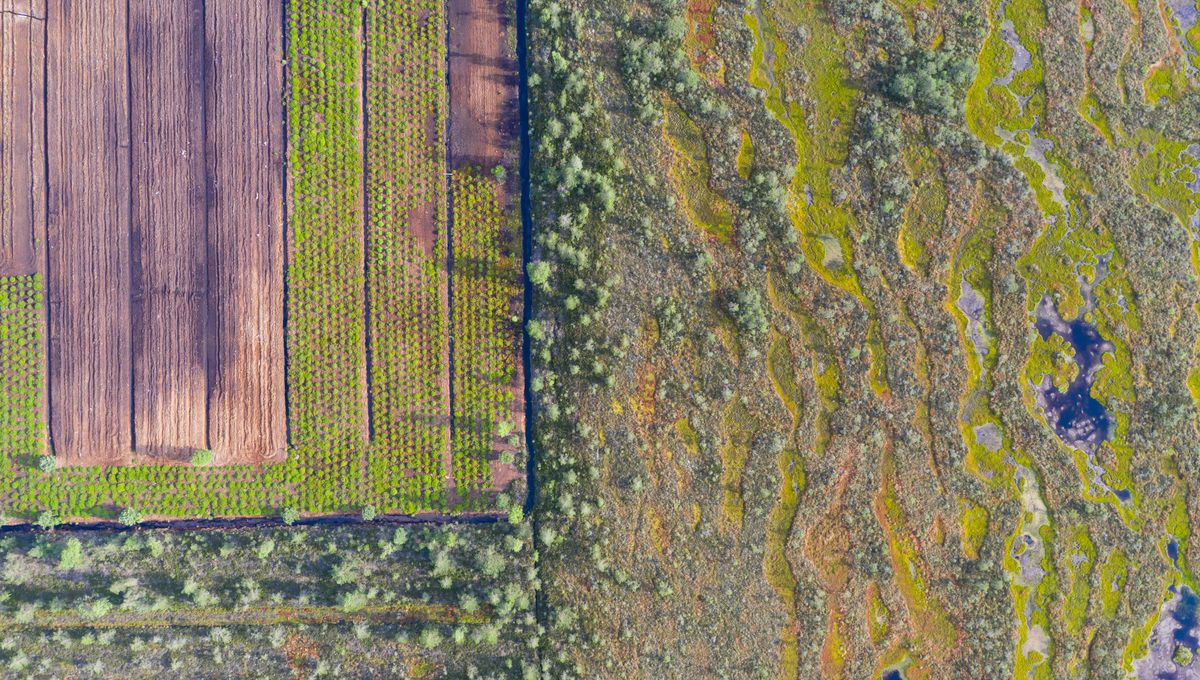
According to the results of a massive new synthesis study of over 2,000 publications, which leaves no room for ambiguity or doubt: humans are driving substantive and devastating biodiversity loss across the planet.
ADVERTISEMENT
Even though scientists have been collecting evidence of human impacts on biodiversity for decades, the overall trajectory of biodiversity in a world dominated by human activity has remained slightly murky. Results have sometimes yielded mixed and often debated outcomes. Moreover, to date, there has been no synthesis of the extent of human intervention in nature and whether the effects can be seen across the world and across all groups of organisms.
This oversight has generally stemmed from the fact that most existing studies have collected data for specific individual aspects. They have either examined changes in species diversity over time or they were limited to a single location or assessed a specific human impact. This has made it difficult to make any general statements about the effects and impact of humans on biodiversity and has allowed skeptics sufficient wriggle room to challenge the idea.
However, this changes now.
In a new study, researchers at the Swiss Federal Institute of Aquatic Science and Technology (Eawag) and the University of Zurich have conducted an unprecedented synthesis study that addresses this gap. The team complied data from around 2,100 studies that compared biodiversity at almost 50,000 sites influenced by human activity with an equal number of sites not affected by humans.
Through their analysis, the team produced an unparalleled dataset of 3,667 independent comparisons of biodiversity impact across all main organismal groups (including mammals, fish, birds, invertebrates, fungi, plants, and microbes) and habitats (marine, freshwater, and terrestrial). This data also related to the five most significant human pressures that are known to ecosystems. These included pollution, climate change, resource exploitation, invasive species, and habitat change, each of which can enhance or reduce species diversity locally and across the Earth.
“It is one of the largest syntheses of the human impacts on biodiversity ever conducted worldwide,” Florian Altermatt, professor of aquatic ecology at the University of Zurich and head of a research group at Eawag, explained in a statement.
ADVERTISEMENT
The results, as you can imagine, are sobering and leave no space for equivocation, denial, or doubt.
“Our findings show that all five [human] factors have a strong impact on biodiversity worldwide, in all groups of organisms and in all ecosystems,” François Keck, a postdoctoral researcher in Altermatt’s research group and the lead author of the study, added.
According to the study, the number of species at impacted sites was almost 20 percent lower than at unaffected sites, on average. Vertebrates, such as reptiles, amphibians, and mammals, had been particularly impacted by species loss across all biogeographic regions. Their populations tend to be much smaller than those of invertebrates, making it more likely they will go extinct.
But species loss is not the only problem now. “It’s not just the number of species that is declining,” Keck added. “Human pressure is also changing the composition of species communities.”
ADVERTISEMENT
Species composition at a location is a second key aspect of biodiversity, in addition to the number of species themselves. For instance, in high mountain regions, specialized plants are at risk of being displaced by species from lower altitudes as the climate continues to warm. In another instance, the number of species at a particular place may stay the same, but biodiversity and its ecosystem functions will still be affected in specific ways – this could include plant species disappearing that are important for protecting soils from erosion due to their roots.
However, the greatest shifts in species communities are found among microbes and fungi.
“This could be because these organisms have short life cycles and high dispersion rates and therefore respond more quickly,” Keck said.
According to this latest study, environmental pollution and habitat changes have negative impacts on the number of species and the composition of species communities, which should not be surprising. Habitat changes are often drastic – consider what happens when you cut down a forest or level a meadow. Pollution, which can be accidental (e.g. oil spill) or deliberate (spraying pesticides), introduces new substances that destroy and weaken organisms living in that environment.
ADVERTISEMENT
The team are also keen to point out that their findings do not mean climate change is not as problematic as biodiversity in comparison. To the contrary, Altermatt explained, “it is likely that the full extent of its impact cannot yet be verified today.”
This is worrying
Homogeneity, how similar species communities are at different sites, was the third key aspect of biodiversity the team examined. For example, intensive, large-scale agriculture homogenizes the landscape, along with the species communities that live there. Throughout the publications examined by the team, the effects of these processes were mixed, with some showing homogenization of species communities as expected, while others showed the tendency for species communities to become more diverse, especially on the local level.
However, the team don’t think this latter point is a good thing. They speculate that increasing dissimilarities could also be a temporary effect in severely impacted habitats.
“The human influence that we find is sometimes so strong that there are even signs that could indicate a complete collapse of the species communities,” Altermatt added.
ADVERTISEMENT
This study has two key and interconnected lessons. Firstly, the findings show that changes in biodiversity should not be based only on changes in the number of species. Secondly, and significantly, they are stark and alarming results, given their global validity.
The findings can also serve as a valuable benchmark for future biodiversity research and conservation efforts.
“Our findings provide clear indications of which human influences are having the greatest impact on biodiversity,” Keck concluded. “This also shows what goals need to be set if these trends are to be reversed.”
The paper is published in Nature.
Source Link: "Unprecedented" Study Shows How Biodiversity Loss Worldwide In All Species Is Linked To Human Activity